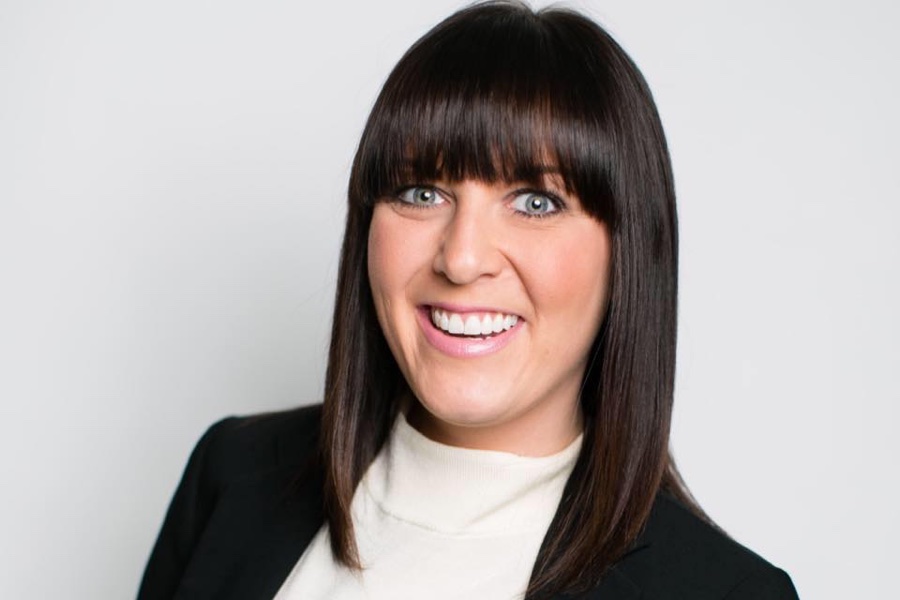LGBTQ&A: Chris Landtroop
We chat with the queer entrepreneur on art, Queerality, and overcoming obstacles for women in business.

Chris Landtroop
Chris Landtroop is the owner of Queerality, a new LGBTQIA art/performance space in Center City. We chat with the entrepreneur on her love of the arts, coming out, and what it takes to break down barriers for women in business.
Tell us a little bit about yourself.
Hey, y’all! I’m Chris Landtroop, and I was born and raised in Dallas, Texas. Don’t worry — I’m not a Cowboys fan! After graduating from undergrad at 20, I decided to teach English in the same school district I attended. I moved to Philly with a lot of experience and none relative to what I needed according to Philadelphia professionals. After almost nine months of bartending here and there, managing restaurants in the suburbs, and teaching dance all over, I took the position as the Learning + Impact Specialist at EducationWorks, a large nonprofit focused on Out-of-School Time programming. I don’t have much family, but what I have left is all back in Texas. My family are the ones I surround myself with in Philly every day now — I wouldn’t be half as far as where I am without the people who have supported my personal and professional trajectory here. And I can’t forget to mention my most amazing little pups: Jackie Roy, a 13-year-old rat terrier I have had since I was in undergrand, and Charles Jeannean, an eight-year-old Chiweenie. At almost 32, I am incredibly grateful for all the personal and professional experiences that have cultivated my life of authenticity!
What has been your general experience so far in the local LGBTQ community?
The best decision I ever made was moving to Philadelphia in December 2015. At the time, I didn’t have a single friend or even acquaintance, and I was unemployed professionally for the first nine months I was here. Coming from a place of silence on my sexuality in public, my experience in the Philly LGBTQ community has been generally incredibly welcoming. As Texas conditioned me to lie about being queer, I was still telling people I was “straight” at Tavern on Camac in January 2016. In retrospect, I think I was a bit intimidated to tell people I liked other female-identifying and -expressing people because the majority of the bars and spaces in the Gayborhood were focused on gay men. From that moment on I have vowed to serve the LGBTQIA community holistically — and loud and proud and unabashedly authentic.
You are opening Queerality at 1042 Pine Street this week. What inspired you to create an LGBTQ space for social justice art?
Honestly, I feel the better question is what didn’t inspire me to create a space for this work. Queerality is the intersection of all my passions, but to capture that essence, Queerality is a space to build my dream of building others’ dreams.
The entire space is a work of art — from the photos hung in the panels, the art displayed in cases, the canvases on the walls, to the chandeliers that I designed and my most talented set designer and dearest friend, Dawn Smith, built, bringing my idea to reality. We are building dreams through the magic of art and education for the queer community. And we’re damn thankful for the opportunity to serve, and we’re oh-so-aware of the work there’s still left to do.
What do you think is the biggest barrier for local female entrepreneurs in the LGBTQ community?
Sexism and ageism are very real factors to entrepreneurship, even in diverse Philadelphia. Business is still a man’s world, no matter what city. For me, I struggled finding real estate as most didn’t take me — whether due to my age or gender, maybe even my sexual orientation — seriously. I had a 100-plus-page business plan, an abridged 15-page presentation business plan, a logo, a staff, and still: “The owner has to decided to move forward with another person” and “The owner doesn’t want to take a risk on a startup” were the only answers I’d receive from realtors, brokers, and property owners.
Besides real estate, there is an endless list of barriers to entrepreneurship for females in the LGBTQ+ community. Because of these challenges, I am going to offer workshops on the art of entrepreneurship at our space to encourage female identifying and expressing people to continue the work despite the obstacles that will arise.
If you only had one piece of advice for those interested in entrepreneurship, what would it be and why?
Do not waste thousands of dollars on education. Workshops, webinars, and mentorship exist for low costs out there and they’re much more beneficial.


